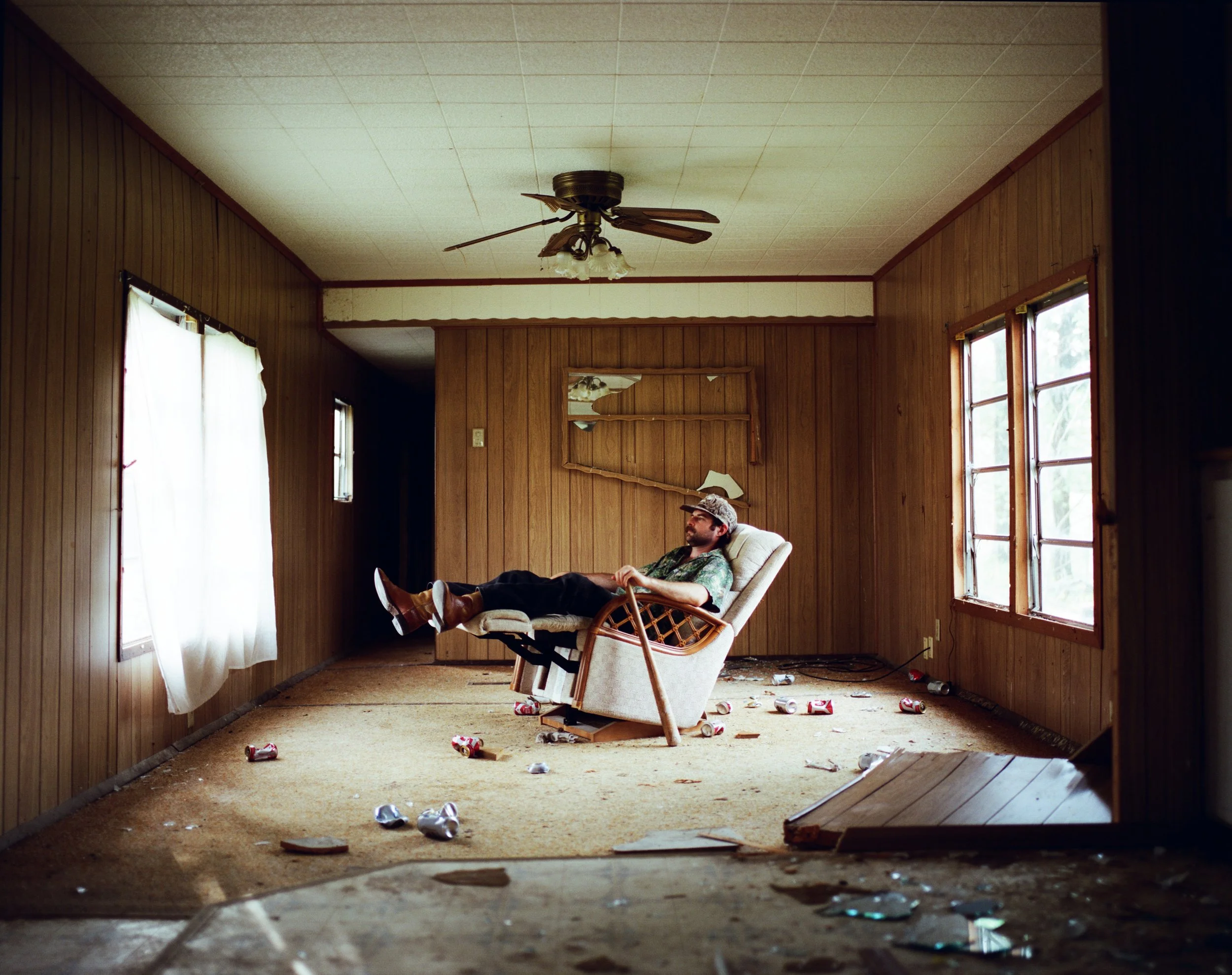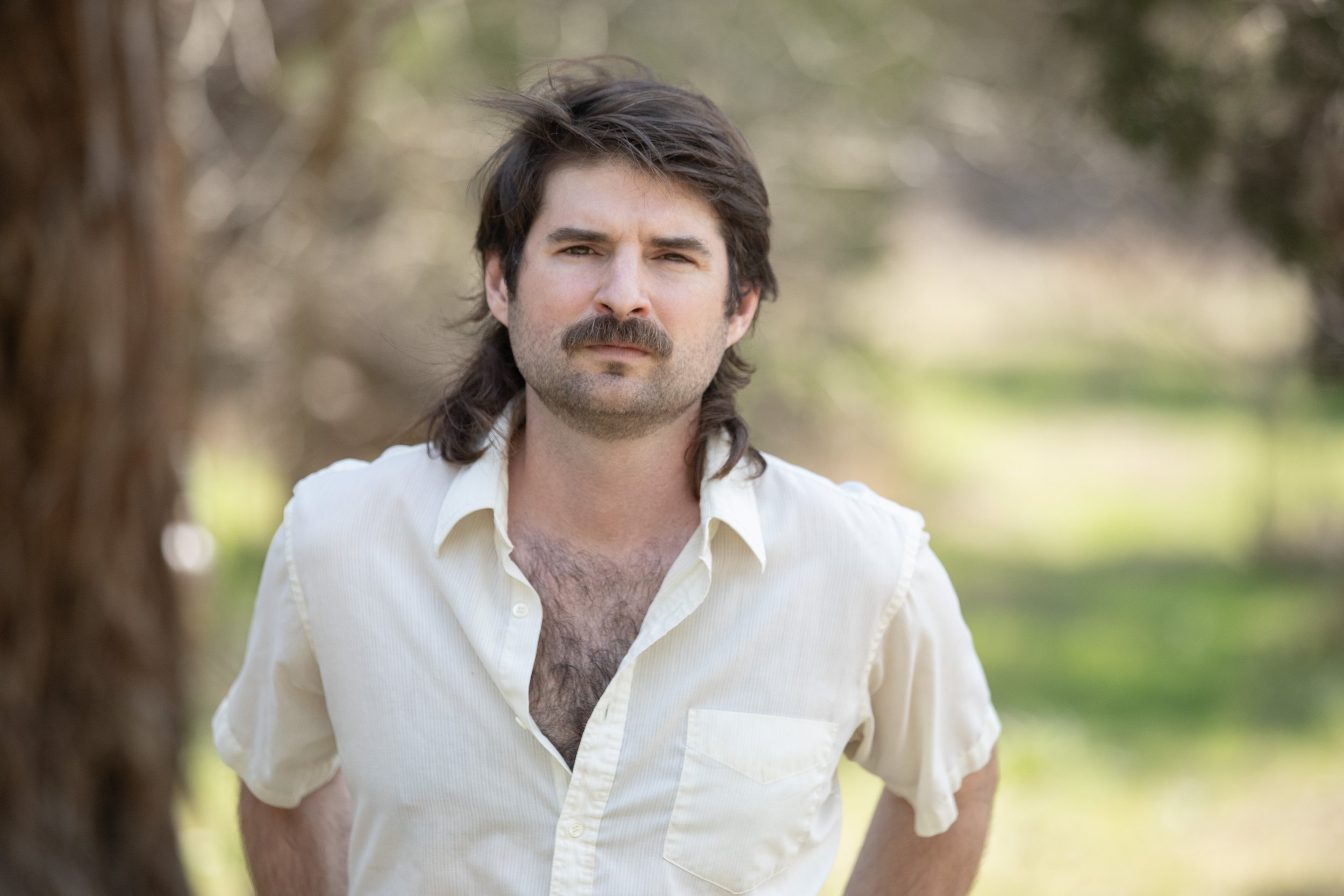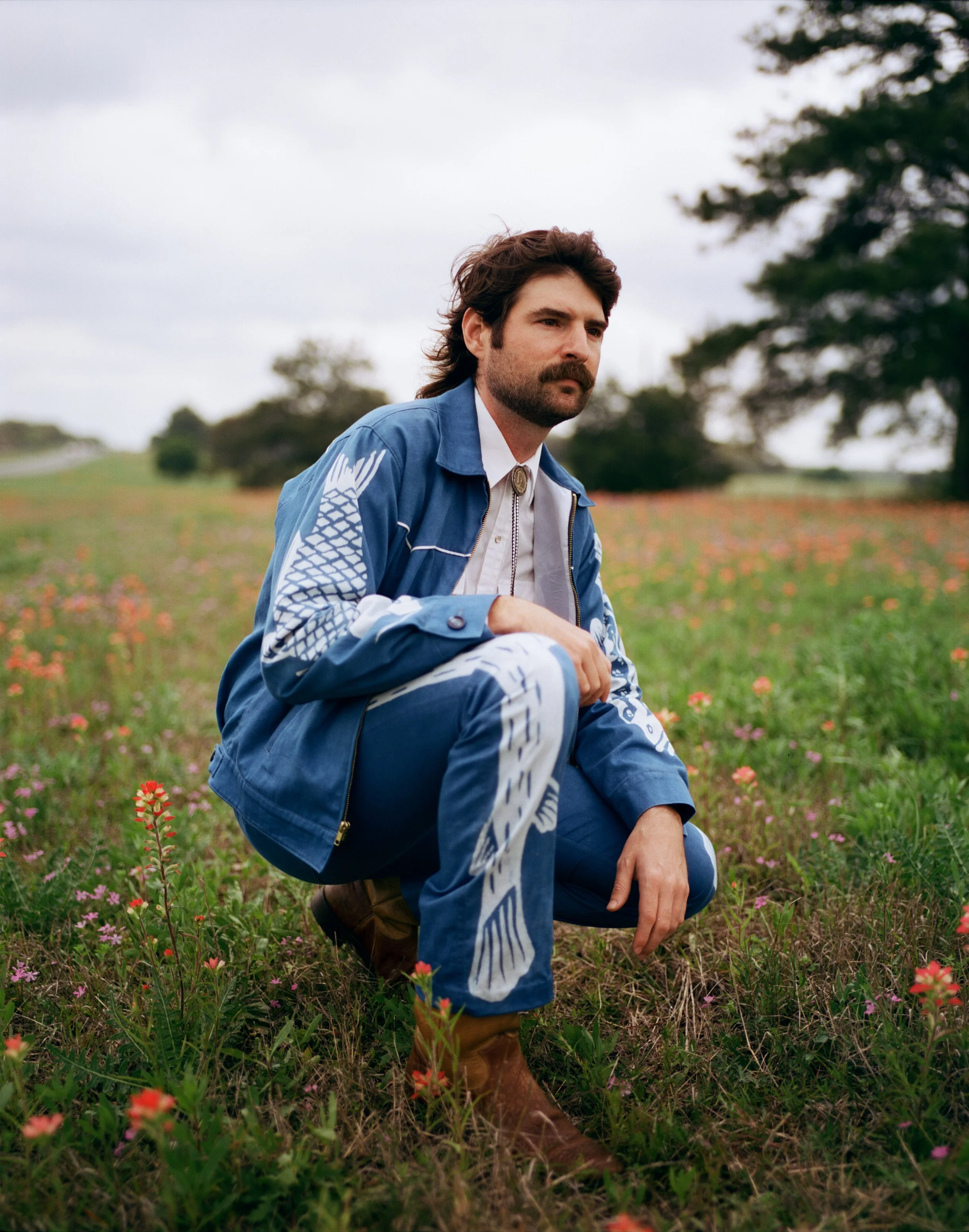Hayden Butler: Country Music Healing
Photo by: Taylor Camarot
Written by: Meredith Lawrence
Country music was never supposed to be a regular part of Austin-based singer/songwriter Hayden Butler’s life, but it ended up saving him, in a way. Growing up in Austin, Butler was well removed from the city’s honky tonks and more likely to listen to grunge and punk, and played in a hardcore band. But after a hiatus, when he returning to playing music in his late 20s, Butler discovered an affinity for country music’s hard luck characters and began learning cover songs and dabbling in songwriting. At the time, he thought he’d just write as many songs down as he could until he inevitably destroyed himself.
But along the way, something happened. Reckoning with the pain helped him process trauma, and became a healing salve.
Photo by: Brian Harrington | Western AF
“I can feel the hand of God and he’s giving me the bird,” Butler sings in the final line of the chorus from “Hand of God,” the pissed off, fed up title track off his debut album. Later, he continues:
And I been fighting the urge to run
Pack my bags and follow the setting sun
Go back out to the west coast to escape my brother’s ghost
But you can’t out run what is in your mind
Intrusive thoughts are by their nature nefarious and tough to shake. And through the song the character’s stability devolves, just as Butler’s did as he struggled to process a strict, unsupportive upbringing, his father and brother’s suicides, and substance abuse.
Butler grew up in Austin and earned a degree in advertising from University of Texas. He quit music for a time, moving first to Dallas, where he worked in advertising, then to South Korea to teach English. Friends introduced him to alternative country radio, and in In 2014, Sturgill Simpson’s seminal record, Meta Modern Sounds in Country convinced Butler country could be cool. He realized country music was neither entirely the classics he’d heard through osmosis during his childhood in Texas, nor the pop country he heard on the radio. He decided if he went back to making music, it would have to be country.
“I felt like there was no hope for me, and like I was going to make the same choice as them someday.”
Photo by: Taylor Camarot
During a stint in Los Angeles, Butler picked up guitar again, and started learning country classics and exploring obscure corners of the genre. He gravitated to artists with troubled lives, like Eddie Noack, George Jones, and Faron Young, to whom Butler felt connected through the parallel pains in their lives. After moving back to Austin during the early COVID-19 pandemic, Butler started writing his own songs on borrowed time, figuring the fates of those stars and his family were inevitable.
“I felt like I was cursed,” Butler says. “I felt like there was no hope for me, and like I was going to make the same choice as them someday,” he says.
Butler set himself a goal of writing one song a week for a year, a milepost which he flew by, writing nearly 70 songs. Around the same time, he started therapy, and eventually medication and got sober, as well. He also started playing shows (his first was at Hole in the Wall). Up front at his shows, Butler noticed how many people two-stepped to his music.
“Someone said this to me, and it really stuck with me that when you're playing and if people are dancing to your music, it's like applause the whole song,” Butler says. When writing, he’d get up to dance and see how danceable the music was, cultivating a reputation in the Austin honky tonk scene.
In bite-size pieces Butler recorded songs, returning to the studio every couple months until he had an entire album’s worth of songs. 2024’s Hand to God is a collection of rock-tinged country songs, reminiscent sometimes Creedence Clearwater Revival and Don Williams. He tackles vice and anger (“Hand to God” and “The Hatchet”), pain and heartbreak (“Old News” and “My Way Out”), and what a raw deal life can feel like sometimes.
But so too as Butler’s life shifted, near album’s end, Hand to God also mellows out. “Born yesterday, and I don’t care who knows it / no I never really lived ‘til I met you,” Butler croons, unapologetically reveling in falling in love, no pretense or toughness needed. Having worked through much of the trauma he looked to write, Butler wryly wonders what he’ll write about next. But he’s blown way past his initial goals, and has another album in his pocket, as well.
“I'm trying to redefine what my goals are,” he says. “I want to take country music as far as I can.”
Western AF is not currently accepting feature pitches for Western Dispatch. If you simply can’t help yourself you can send it to westernafsubmissions@gmail.com but, really, we aren’t accepting pitches.



